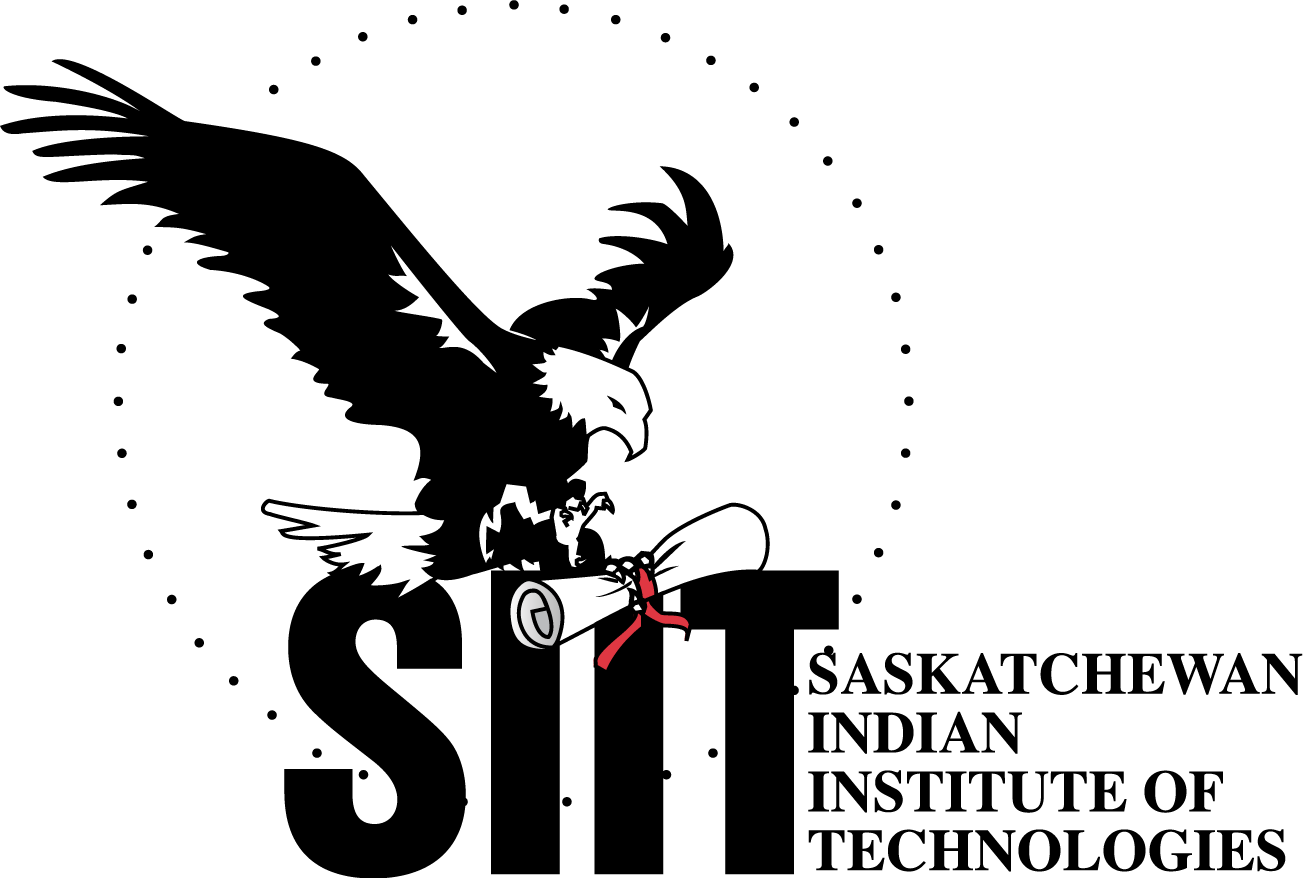17 Reporting Accidents, Incidents, Near Misses and Injury
Michael Hrycay
Learning Objectives
Discuss the duty to report accidents, incidents, near misses, and injuries
Accident Investigation and Reporting
Purpose
The purpose of accident investigation is to find out the root causes of the accident and to prevent reoccurrence. Accidents, incidents and near misses (close calls) must be investigated.
Investigation Team
The accident investigation team generally consists of the following:
- manager or supervisor
- company safety officer (if available)
- health and safety committee representative(s)
- union representative, if applicable
- employees with experience in investigations
- other outside help, if needed, such as experts or local government representative
Roles and Responsibilities
You must report any occurrence of an accident or incident to your manager or supervisor immediately.
Your manager/supervisor is responsible for conducting the accident investigation and notifying the health and safety committee and other people as required by your company. During the course of investigation, employees may be asked to participate as they are familiar with the situation, may have been a witness, or may have expertise in the area.
Report
The accident investigation report is generally submitted as a formal document which includes the following:
- name and occupation of employee
- location and time of accident
- names of witnesses
- description of the incident including equipment and working conditions
- recommendations about implementing corrective measures
- name of the person completing the report
- recommendations for remedial action
Safety Inspections
Purpose
The purpose of an inspection or safety tour is to identify unsafe conditions as well as unsafe practices, and to recommend remedial action. The occupational health and safety legislation requires regular workplace inspections (in Canada).
Inspection Team
Inspection teams should consist of a mix of personnel such as hourly workers, full-time employees and managers.
When conducting an inspection, it is important that team members use required personal protection and set a good example. The inspection team should talk to the workers.
Role and Responsibility
Inspections are undertaken in accordance with a schedule agreed upon by the health and safety committee.
The inspection teams generally use a checklist as a guide for conducting inspections. You may use the checklist on page 8 as a guide to develop one for your own workplace.
Inspection Reports
Inspection reports are communicated to all levels of the organization. Inspection reports should be posted on bulletin boards, reviewed at health and safety committee meetings, and distributed to the management for review and response.
Sample Inspection Report and Checklist
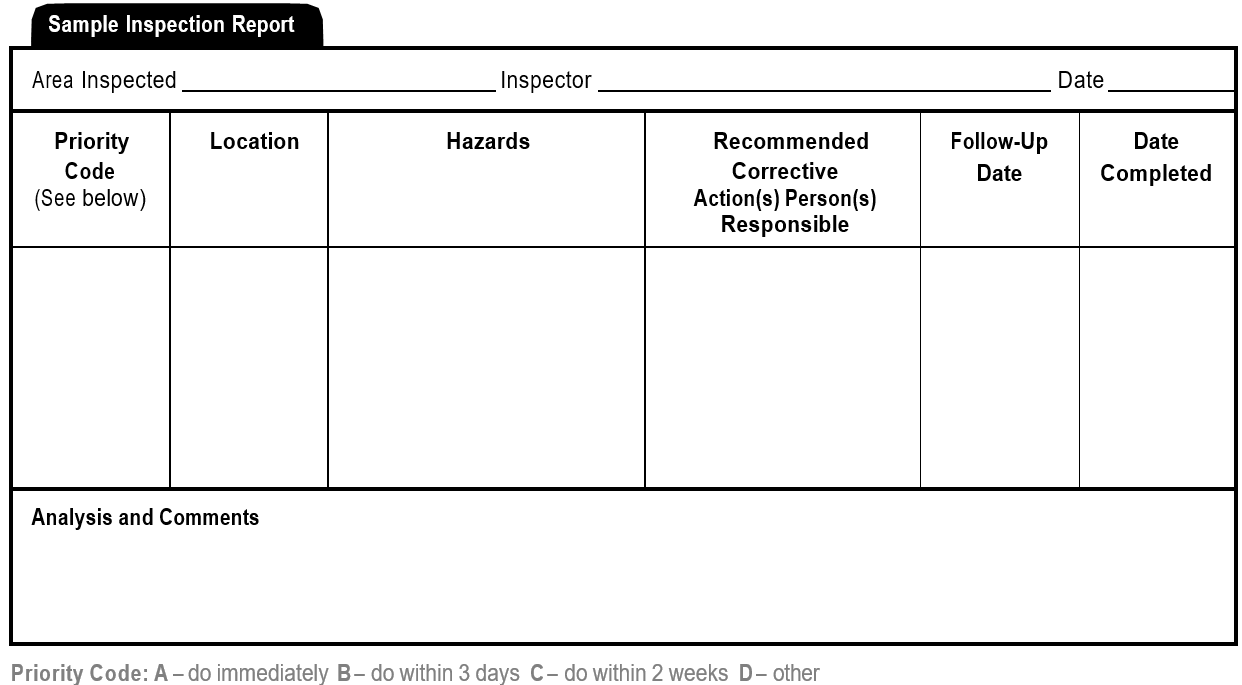
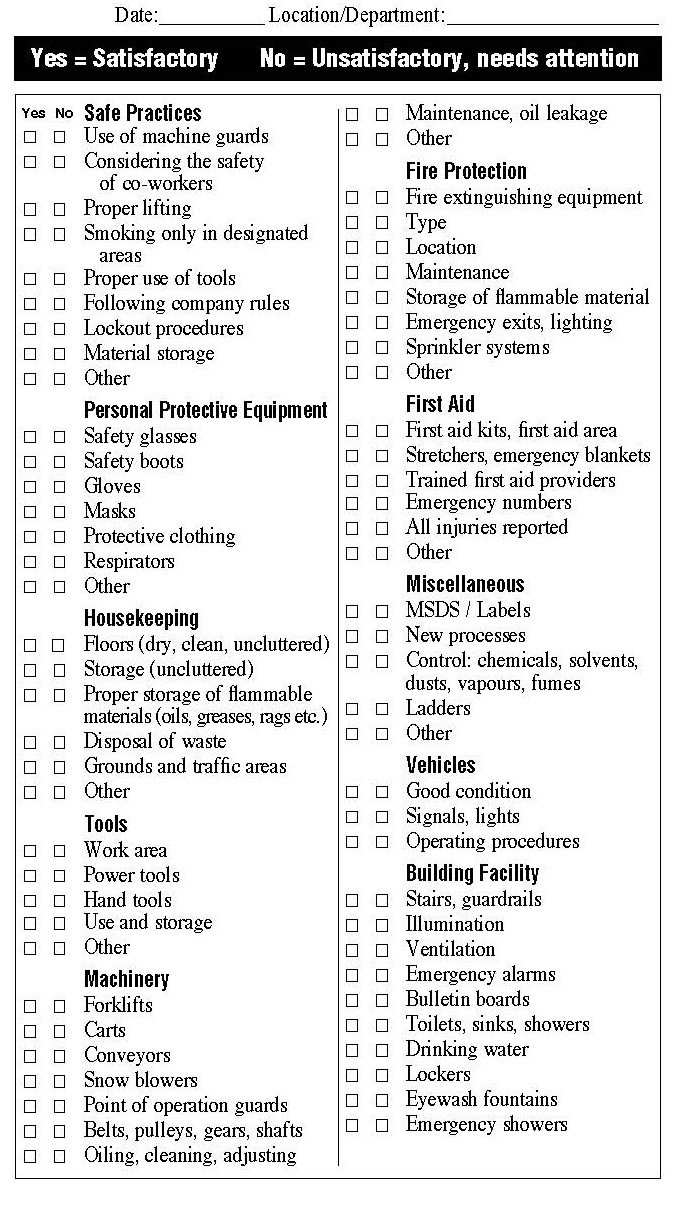
Hazard Reporting
The health and safety legislation requires employees to report hazards to their supervisor. The immediate hazard reporting process allows employees to report hazardous conditions or practices as they notice them. This allows for prompt corrective action without waiting for the next round of regular inspections.
Hazards can be reported verbally or by filling a simple form. The following is an example of such a form.
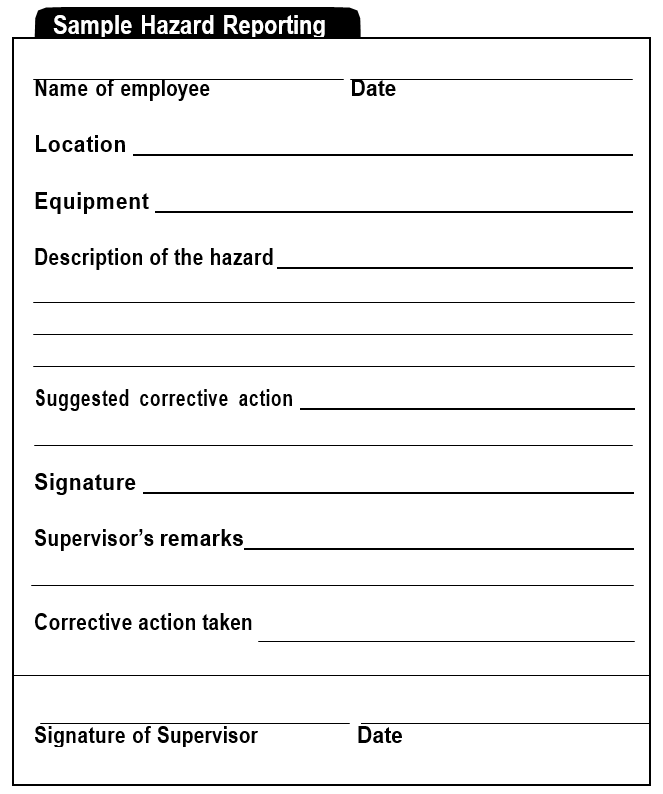
First Aid
First aid regulations require that employers in all work- places provide first aid facilities, equipment, and trained personnel. For details please check first aid regulations applicable to your workplace.
People who hold valid first aid certificates should make sure that the contents of first aid boxes are maintained and periodically replenished.
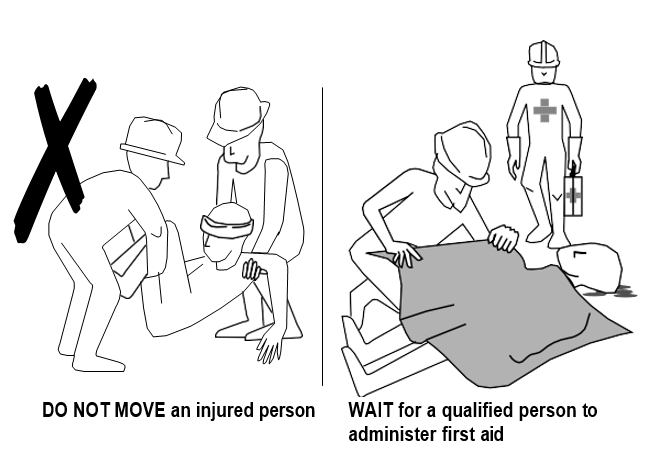
In case of injury:
- Promptly obtain first aid.
- Notify your supervisor/employer.
- Ask for a treatment memorandum to take to a doctor or hospital. If there has been contact with a chemical, take along the material safety data sheet (MSDS).
- Complete and promptly submit all forms required by your local safety insurance or compensation board.
- Your employer should decide on the need for an accident investigation.
Your employer should post the names and telephone numbers of the people who have agreed to provide first aid at the workplace.
